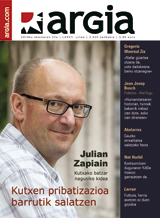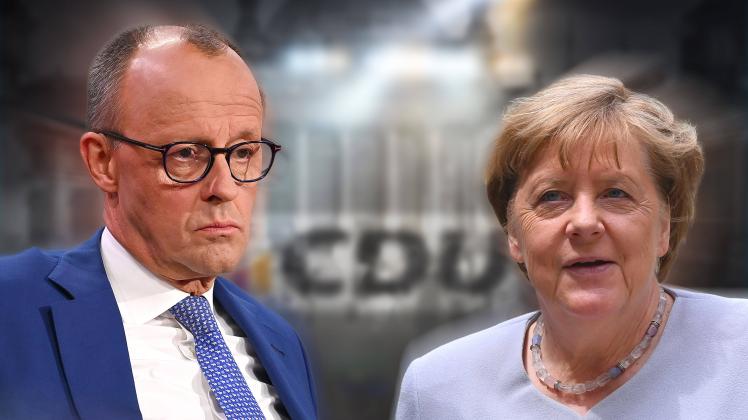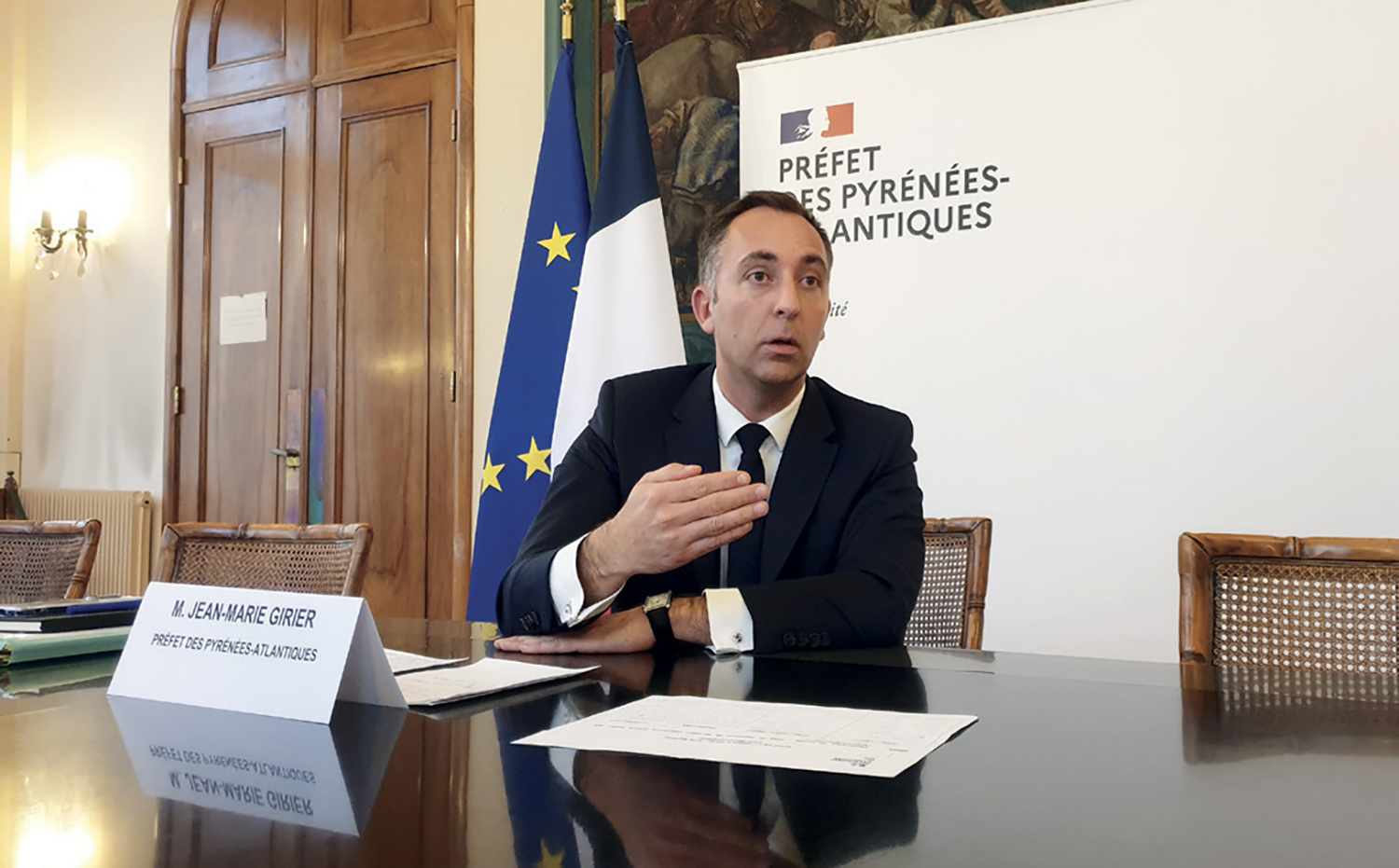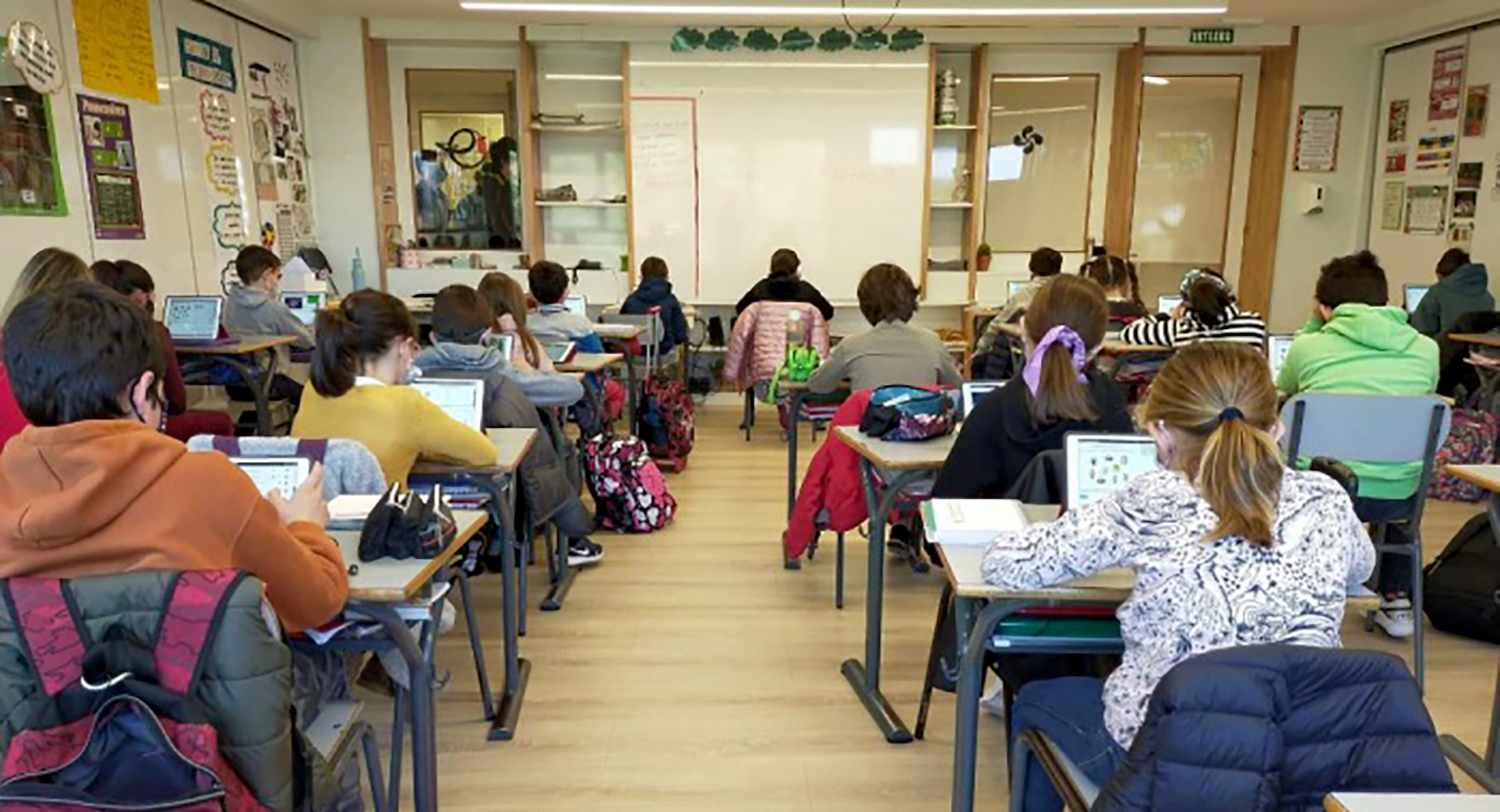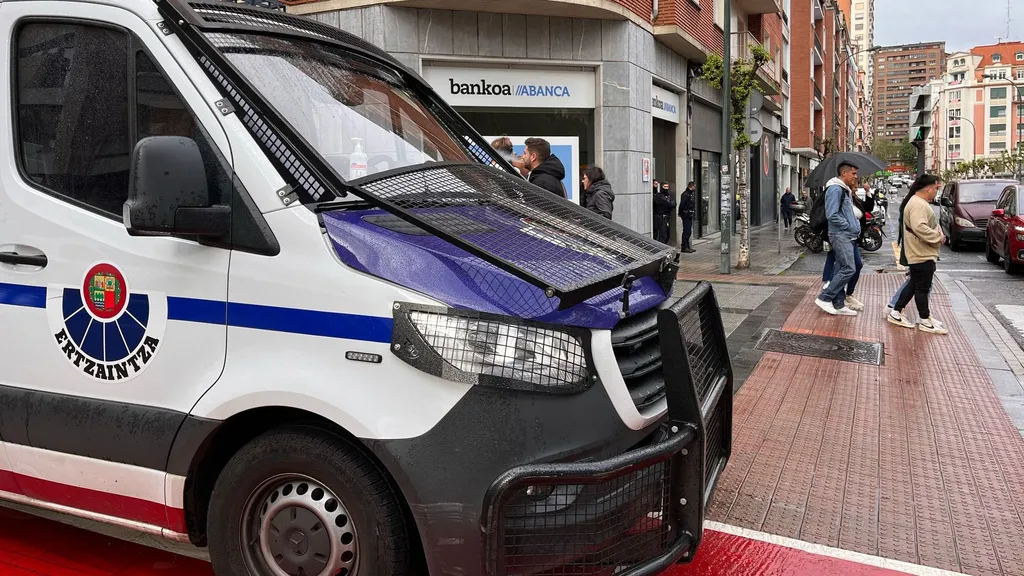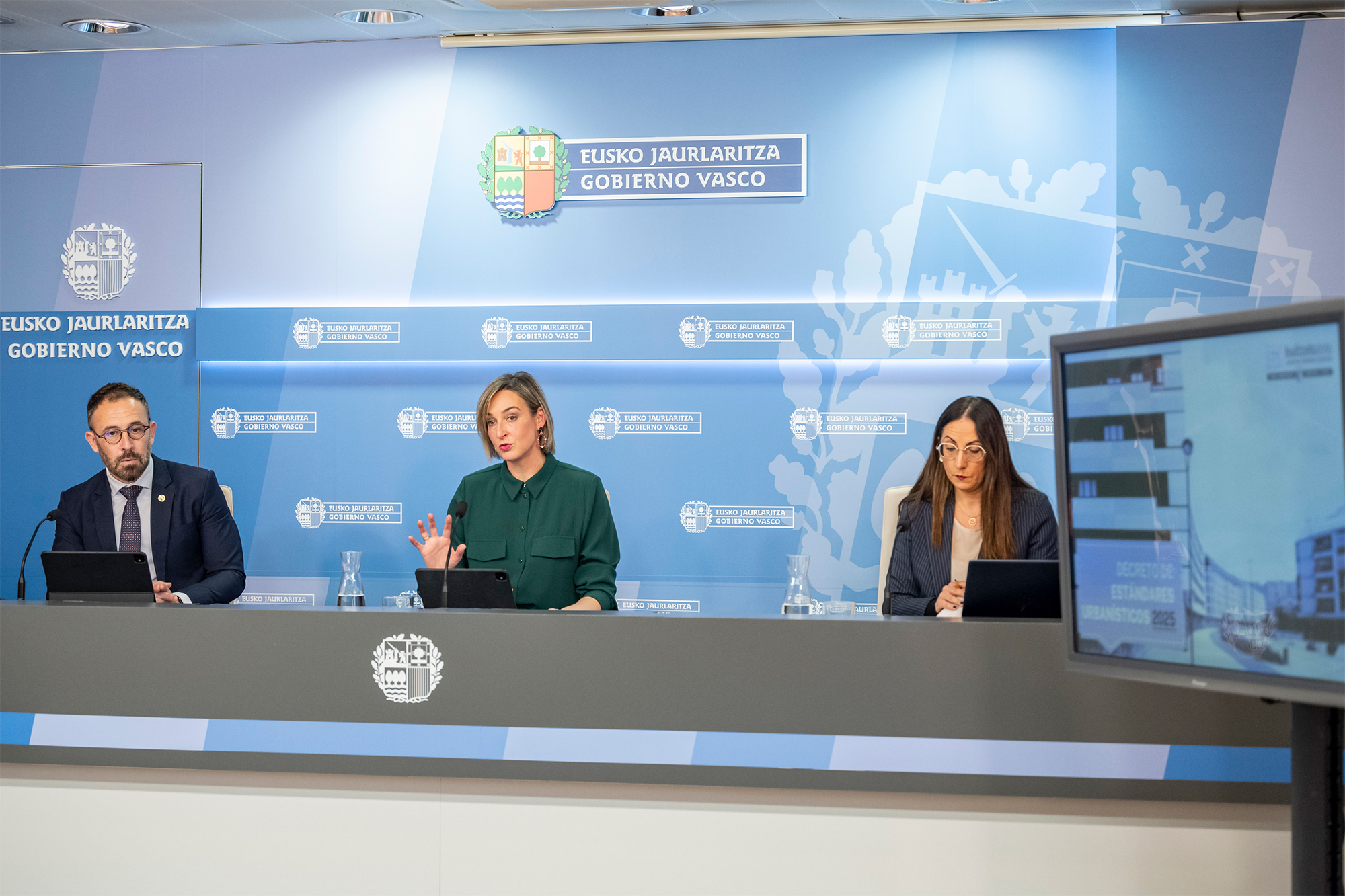We want democratisation in the field of energy
- The GoiEner energy cooperative was established in 2012 and the first electricity supply contracts began to be concluded in October last year. Currently, GoiEner has 1,600 partners and a 1,000 partner contract. Modest amounts, but rapidly growing. At a time when the electricity bill in the homes of Hego Euskal Herria is causing more and more headaches, Ochoa de Eribe has warned us: “Whoever contracts us will not pay less.” The difference lies in the origin of energy: they only sell the renewable and the close.
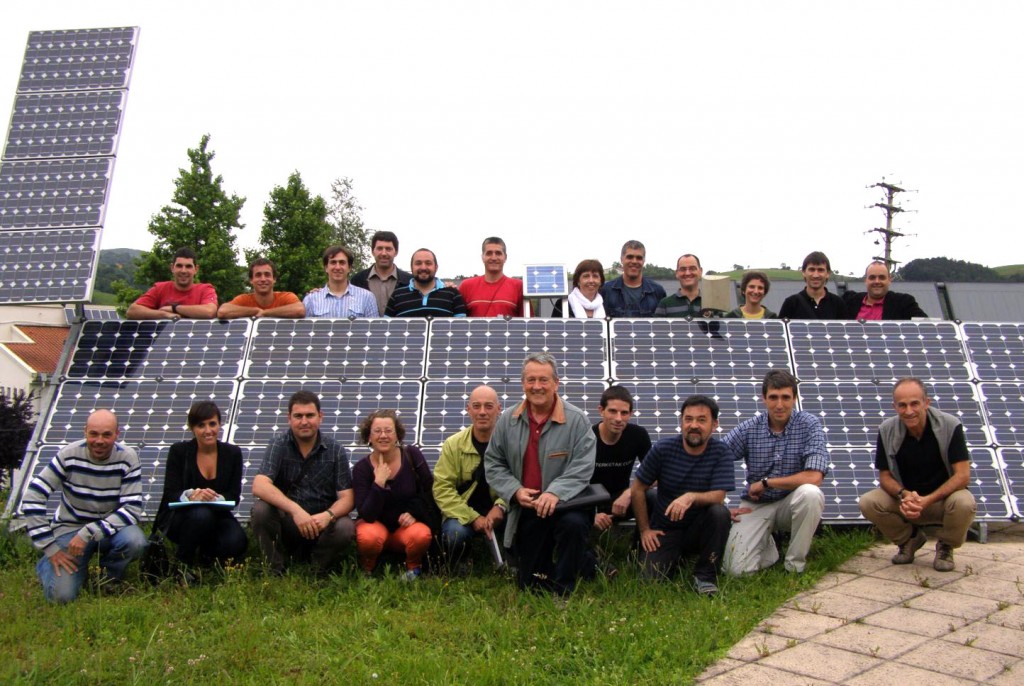
What is GoiEner?
An energy cooperative of non-profit citizens. People know us because we are an electricity supply company, and the source of that electricity is renewable sources, from here. It's over. Of course, we don't usually present ourselves that way. That's a tool for us. We want democratisation in the energy sector.
They therefore denounce that the current democratic system is not ...
There are major shortages, both in economic and energy terms, because the two are very closely linked, and we do not realize that. Well, we realize that invoices are becoming more expensive, so we know the impact of energy on our daily economy, but we don't see generality. We could talk about the oil summit. It cannot be said that natural resources are running out, but productive processes are reaching a summit. The balance between demand and supply is being lost; demand is increasing, especially in countries such as BRICS, China, India, Brazil... despite the fact that demand in the West is falling gradually and in the Spanish State remarkably. Some say: there are resources almost forever. But the processes needed to extract and market these resources are going to decline.
What do you mean by the steps down?
It's harder and more expensive to extract fuel. There are extractions in the Arctic, in deep waters -- and the performance is getting smaller and smaller. We need more and more energy to get a unit of energy out. That's what happens with fracking, with heavy oil ...
And does that have to do with creating GoiEner?
Yes, he has. Our goal is to talk about these things, to make people aware of the influence that our consumption model has on everyday life. And it's not sustainable at all. We are experiencing a series of crises, the most important one, the economic one, which comes from 2008, but we do not know that there is an energy crisis behind that crisis. We don't see the impact of energy on the economy. Solutions, sustainable and local solutions must be sought as far as possible.
It's hard to understand the electricity system of the Spanish state. What exactly does GoiEner do within that?
The chain has four eyes: production, transport, distribution and marketing. When liberalisation was granted in 1997, only the first and last were liberalised, in theory rather than in practice: production and marketing. We are merchants. At the beginning of 2012, we held the first meetings to launch the project, with the intention of being a mere producer. A great deal is being done in other countries. In the United Kingdom, for example, energy communities are being created through crowdfunding. Several people are gathered together, some 1,000 euros are put each, photovoltaic plates are installed on the roofs, or a small hydro power plant is recovered that was standing or... So the production is not in a distant place like Garoña, but close to your house.
In the end, they gave up production and created the marketing company. Why?
Because in January 2012, the Spanish Government imposed a "moratorium" on renewables. In other words, there are no more prizes for new renewable energy installations. Until then, if you installed a renewable energy plant, on the one hand you received the money you obtained directly from the sale, and to that was added the prize that the State has established through the official bulletin: to produce so much, to receive so much. This recognised the good role of renewables in the system. In fact, the facilities launched before 2012 have not received any kind of cash prize. That is true, with cuts and delays.
And what is the positive impact of renewables on the system?
It doesn't have to import that much fossil fuel, it doesn't have to pay for CO2 emissions, it drives the local economy ... However, the renewables sector has repeatedly claimed that it would prefer not to receive this money, while “the polluter pays”. In other words, instead of inflating the profitability of renewables with prizes, it is imposed on others, on pollutants (coal, gas...). However, the fossil fuel sector is very powerful and did not dare to implement such punitive measures. That's why prizes were invented, to somehow recognize the benefit of renewables.
And in 2012, though, they took it off. In particular, UNESA, the association that brings together the most powerful electricity companies, accuses citizens of raising both the electricity bill and the renewable prizes.
Yes, part of the bill is to pay these prizes, but renewables are not said to drop the price of electricity. We pay on the invoice the price that goes on the market and the money for renewables. When a windmill produces nothing, we don't pay him any prize, but in the market the price rises. On the contrary, when renewable sources produce energy, the price of electricity falls, but they have to be paid a reward. Where is the point of balance? Studies have been carried out and it has been seen that we could pay almost 40 cents per kilowatt hour and we would be at a price equal to that which would charge electricity on the market without renewables. But with all the benefits of renewables.
How much are they paid now?
Fifteen cents. They could still be paid much more, and the balance would continue to be favourable to the consumer.
If that is the case, why have these quantities been suspended?
Halt the growth of renewable energy sources. One of the features of renewables is that they allow access to energy in a much more democratic way, something that large installations do not have. Anyone can put some plates on the roof or get together with some friends and assemble something bigger. In this way, the consumer owns the energy he consumes, which is not in the interests of big business. Renewables have been rapidly developing and big companies were starting to feel that they were not going to be able to adapt to the new situation in time. As a result, they would lose their business.
It seems to say that an Iberdrola, for example, is going to lose business...
It should be noted that in the Spanish brick boom some 25 gigawatts of combined gas cycle were installed in the State (for example, the sum of all forms of energy is 100 gigawatts installed). The investment was made when they thought building growth was going to continue. But in 2008, the bubble burst, the demand for electricity went down, and at the same time, renewables were already fully extended. When introducing electricity into the grid, some producers have priority, and one of the last to enter is gas. Of course, for the central gas to be profitable, it has to burn gas, because in addition, the gas has bought it in advance for several years. Most of the plants are from UNESA and UNESA thinks that, in one way or another, I have to make my investment profitable.
Hence the electricity reform in the Spanish State?
Yes. UNESA companies have great power. Members of the Congress of Deputies in Madrid have recognised that the most influential lobby is that of energy. To turn the situation around, they have launched a campaign against renewables, which has two fronts. On the one hand, through the media – it must not be forgotten that they are one of the great advertisers of the main media – they have discredited renewables: they are expensive, they are not reliable ... This message has been a great success for the public, and the renewables sector has not been able to catch up. The other line of work of big companies is the relationship with political power. The former presidents and former government ministers are already in the management positions of these companies. Who does the energy policy, after all? Some private companies. And the laws are made according to their interests.
At a conference you said that GoiEner was created to resist this situation.
Sustainability, the need to address climate change -- these are some of the reasons why you create such a cooperative. Also efficiency. Today, 15 percent of what we pay on the electricity bill are transportation losses. If electricity is produced at 100 or 200 kilometres from the place of consumption, it is transported through high-voltage lines and much is lost. With production close to home the loss is not so great and you don't have to pay it. The point is that we need another energy model. It may seem strange, but our goal is to consume less and less. On the one hand, increasing efficiency, and on the other hand, avoiding unnecessary expenses. Development cannot be associated with the consumption of more energy, quite the opposite. But we go on with classic schemes. “Rising consumption causes GDP to rise and that’s good.” Well, no. The best energy is the one that is not spent. We must reduce consumption without losing the quality of life.
49 urte preso pasa ondoren, libre utzi dute Leonard Peltier AEBetako ekintzaile autoktonoa. Otsailaren 18 honetan heldu da bere senide eta lagunen artera 80 urte dituen preso-ohia.
In the Maszycka cave in Poland, remains of 18,000 years ago were found at the end of the 19th century. But recently, human bones have been studied using new technologies and found clear signs of cannibalism.
This is not the first time that a study has reached this conclusion,... [+]
Porzheim, Germany, February 23, 1945. About eight o’clock in the evening, Allied planes began bombing the city with incendiary bombs. The attack caused a terrible massacre in a short time. But what happened in Pforzheim was overshadowed by the Allied bombing of Dresden a few... [+]
On February 3rd, the time has begun to pre-enroll our children and young people in schools, and as every year we would like to remind you why we do not think it is a good idea to enroll them in religion. Last year we finished the article saying that “many of you will be... [+]
From the Association of Parents of the Instituto Arratia Small Tram we want to encourage reflection on the use of screens in the learning community.
Lately there is a lot of concern about the impact of screens on children and adolescents. This responsibility extends from... [+]









